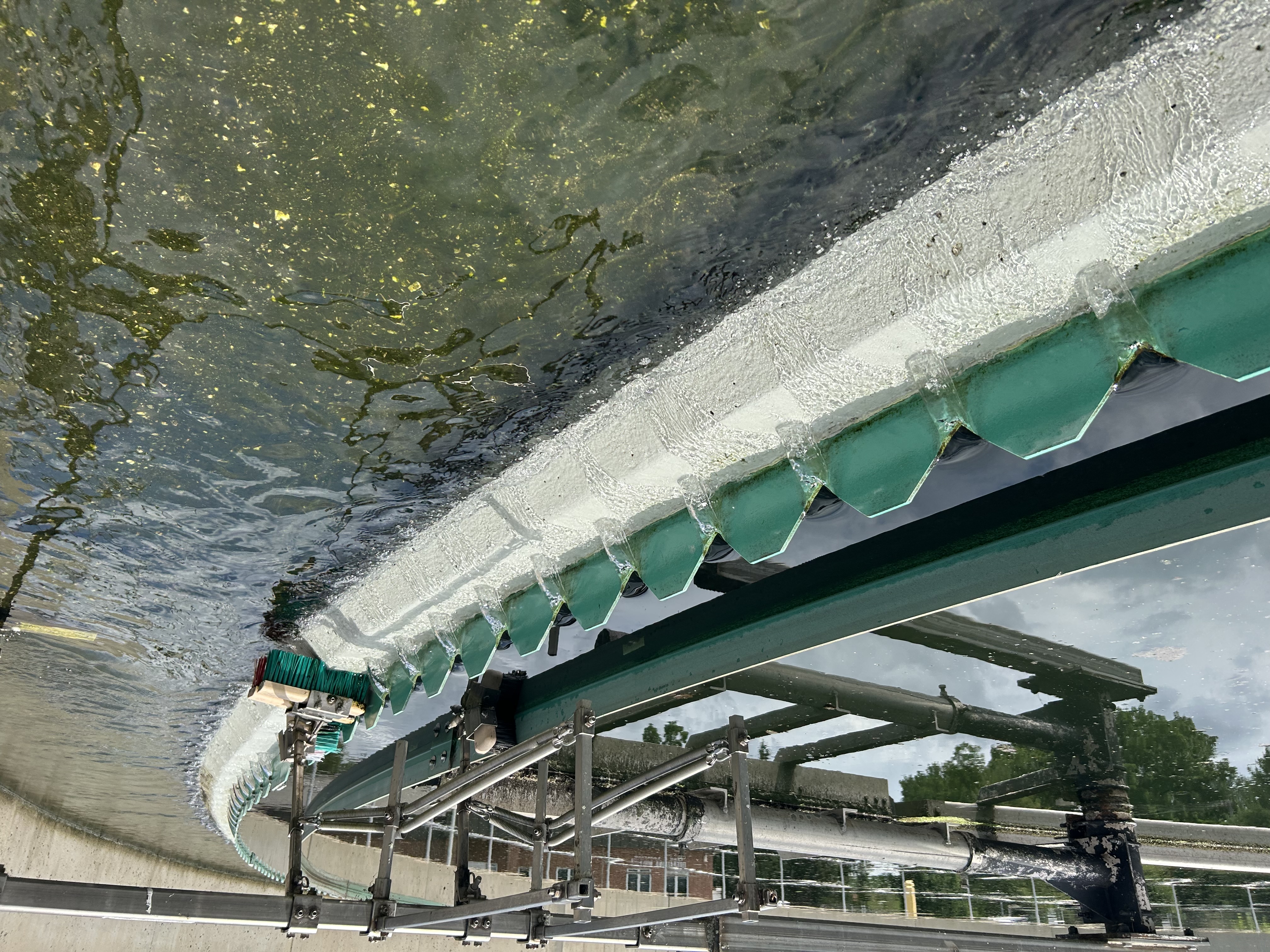Spring of 2025 proved to be one of the wettest seasons that we have experienced in Dover Township since the spring of 2018. In total we have accumulated 14.6” of rain which was recorded on our recording server located at the wastewater treatment plant. Rain can cause increased flow to wastewater treatment facilities through inflow and infiltration (I/I) of ground water in the sanitary sewer systems. Ground water can enter the sanitary sewer pipes through cracks, joints, and inappropriate connections which directly impact the volume of water that enters wastewater treatment facilities.
At the Dover Township Wastewater Treatment Plant, we have two separate “trains”, or paths in which flow can be sent for treatment. Each of our Trains consist of Influent Pumps, De-Grit tanks, Oxidation Ditches, and Secondary Clarifiers. Under normal operating conditions only train # 2 is used for treatment. Due to the elevated flows received this spring, our operators have had to utilize train #1 to start treating daily flow.
In recent months we have made changes and improvements to the treatment plant, mostly in train #1. Our operators have installed new Dissolved Oxygen probes on our train #1 Oxidation Ditches. These probes allow us to control the amount of oxygen being added to our aeration zone via our web-based SCADA program that communicates to the motorized aerators. Our train #1 secondary clarifier recently underwent concrete repairs around the effluent trough where water is sent for disinfection before discharging to the Conewago creek. The concrete was repaired and sealed with a high strength epoxy paint that will prevent short circuiting.
Moving forward the plant is much better equipped to handle higher flows during wet seasons of the year. This was accomplished due to the hard work of our plant operators.






